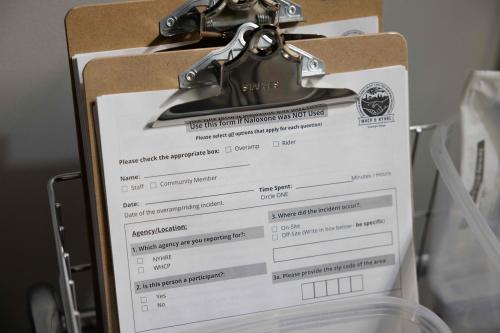Vanda Felbab-Brown joined Robert Farley of the University of Kentucky to discuss the threats posed by strengthening drug cartels in Mexico, weakening central governments in Pakistan and Afghanistan, and other transnational security threats.
ROBERT FARLEY, host: To start off talking about Mexico, you wrote a paper about Mexican drug cartel issues and especially the violence that’s been afflicting Mexico over the past two years, which is really dreadful violence even when compared to Afghanistan and Iraq. Why don’t you start off and talk a little bit about the drug cartel issue in Mexico.
VANDA FELBAB-BROWN: Mexico has very much captured the attention of U.S. policymakers and media over the past few months. There has been a real extraordinary flurry and activity of both reporting and Congressional hearings on Mexico, because it’s such an important country because it is our neighbor and because it’s going through a very violent period. And it’s very much related to drug wars that are going on there.
Mexico has become the principal access route to the U.S. consuming market. We in the U.S. are one of the biggest consumers in the world and because of the border with Mexico, both the sea access as well as the land border, Mexico is just very strategically positioned to become the trans-shipment center. It has happened since the mid 1990s, when until then, the dominant and famous cartels, the Medellín Cartel and the Cali Cartel were largely destroyed. This provided an opening for new actors to come in and it was the Mexicans that have become really strengthened.
The Brookings Institution is committed to quality, independence, and impact.
We are supported by a diverse array of funders. In line with our values and policies, each Brookings publication represents the sole views of its author(s).



Commentary
Weak States and Strong Troublemakers
May 25, 2009